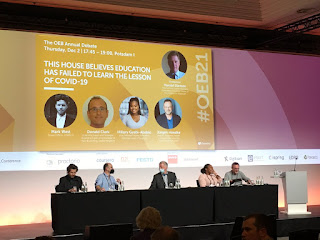I have expressed scepticism around the relevance of Foucault, Lyotard and Derrida. Oft-quoted and rarely read, they are plucked from the Postmodern Hall of Fame and used by many to fashionably deanchor us from people in the past and present. But there is one French philosopher I have read all my life, who is very much an outlier - Jean Baudrillard (1929 - 2007). He has proved far more relevant as a philosopher, cultural theorist and prophet. Following on from my last piece on the Multiverse(s)...
How Metaverses develop
Neo, in The Matrix, carries a copy of Baudrillard's Simulacra and Simulations (1981) to make the point that the film is grounded in and a commentary on simulations.
But The Matrix scene with its old-school computer discs inside the book seems rather dated now. The Multiverse(s) is a far more significant move towards the Baudrillian world of what he called hyperreality. As face-to-face and print media moved towards film and television, then online worlds, Baudrillard redefined media in terms of simulcra, or created entities that are no longer just representations but created realities in themselves, de-anchored from reality. These are not just digital media but worlds divorced from reality. He is, the philosopher of virtual reality, the man who envisioned and defined the Metaverse in its infancy, knowing what was to come.
Rather than seeing the world in terms of the old binary oppositions of appearance and reality, subject and object, oppressors and oppressed, he sees us as increasingly being in a world of Simulacra and simulations (1981) – ads, TV news and soap operas. With the Metaverse, we are literally moving into those worlds, inhabiting them, creating new economic models and economies within them.
He maps out the way in which this develops. Metaverses start first to reflect a reality, they then mask and pervert that reality and increase the absence of that reality, then finally bear no relation to reality. There is a brilliant passage in this book on Disneyland. You will never see that place in the same light after reading this critique of the US ‘embalmed and pacified’.
Astonishingly, all of his work was written in the era of broadcast media, before the internet. Now that his simulacra are being realised in computer games, social media, virtual reality, artificial intelligence and now Metaverses, he is more relevant than ever.
Metaverses and meta-narratives
He rejects what other Postmodernists called meta-narratives, the Marxist and Freudian ideas of the free agent. But where he differs is in positing an alternative, replacing it in Consumer Society (1970) with a more complex agent as consumer and consumption, not production, as the new locus of economic activity. The areas of economic activity are now simulated environments in the real world, in malls, with their perpetual springtime and shopping. We even buy these simulated ‘experiences’ even in what appears to be the physical world, such as Disneyland.
These new drivers have made us not producers but consumers, with a huge capacity for consumption. Credit literally fuels this excessive consumption by making the satisfaction of these desires easy and immediate. He goes much further in The Mirror of Production (1973), where the major elements in Marxism are demolished. Turning Marxism on its head, he restatess it as a justification for the very system it claims to destroy. With its focus on labour, production and value it lacks distance from the system, working within the mechanics of production. This focuses on the free economic agent rather than that of the consuming agent.
Baudrillard is also the philosopher of ‘consumerism’ which he thinks is now a refutation of ‘communism’. Rejecting the economic explanations of traditional Marxism, the actual world is now a complex nexus of consumerism, communications and commodities. Cryptocurrencies, NFTs, tradable digital entities in games worlds free float beyond Marxist materialism. People are no longer economic agents with a process of production, they are agents who consume and occupy hyperreal worlds. The fact that one of the largest, most valuable and globally pervasive companies on the planet has adopted this as their brand and goal confirms his view that physical production is no longer the essence of capitalism.
Metaverse and history
In The Gulf War Did Not Exist (1991) he shocked many, claiming that the war, as re-realised through media, had created a reality separate from the actual war. His deeper meaning was that when events become dislocated in this manner, history itself collapses through dilution. It moves us beyond an ‘event’ based culture to a non-historical state. Being stuck in the ever-present spectacle, we forget the past.
It is not just that such wars are now filmed, tweeted and YouTubed, many are almost immediately turned into movies and computer games. Dozens of movies now exist and I know of at least 18 computer games based entirely on, or containing, Gulf War events. Revolutions are no longer televised, they’re gamified.With 9/11 we saw this happen with even more intensity and reach, where the two perspectives of the event result in the clash of two separate and global worldviews.
Baudrillard’s position on all of this was brave and honest. He thought that this was almost inevitable. That we as a species will drown ourselves in our own simulacra, its all-consuming nature will smother and consume us. His only reaction was Nietzschean - silence. Baudrillard really (or unreally) is the philosopher of the age of Multiverses.
Bibliography
Baudrillard, J., 1995. The Gulf War did not take place. Indiana University Press.
Baudrillard, J., 2019. Simulacra and simulations (1981). In Crime and Media. Routledge
Baudrillard, J., 2016. The consumer society: Myths and structures. Sage.
Baudrillard, J., 1975. The mirror of production (Vol. 17). St. Louis: Telos Press.
Baudrillard, J. and Singer, B., 1990. Seduction. New World Perspectives.
Baudrillard, J., 2005. The conspiracy of art. New York

